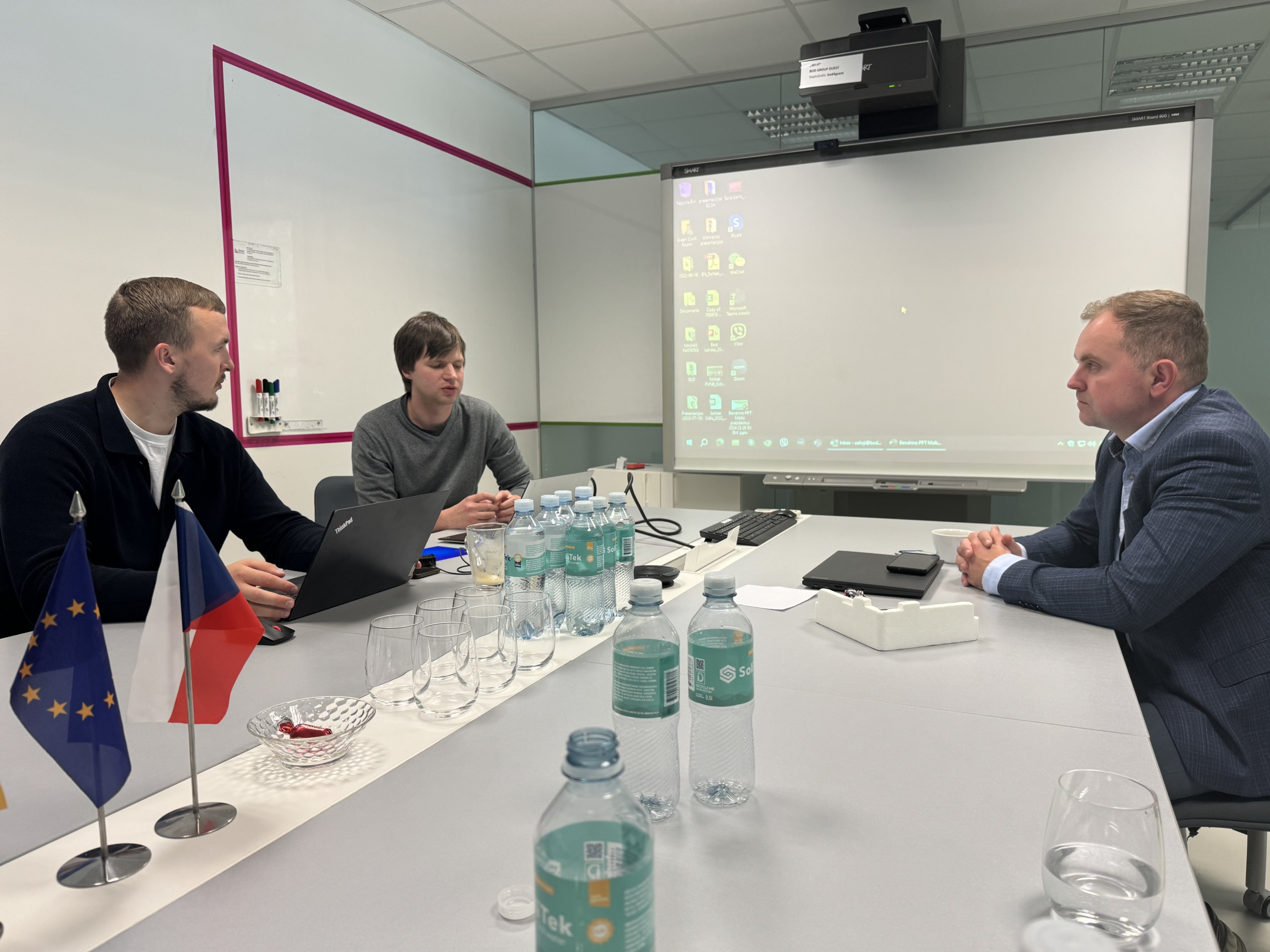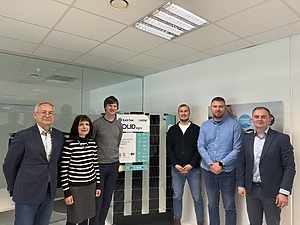The “Organic Semiconductor Synthesis” scientific group led by KTU Faculty of Chemical Technology professor Vytautas Getautis, participating in the “Mission-Based Science and Innovation” program “Smart and Climate Neutral Lithuania,” together with business partners from the company “Soli Tek R&D” is carrying out the joint project “Smart Functional materials for next-generation solar cells.”
In order to ensure smooth cooperation, partner meetings are periodically organized, one of which took place in Vilnius, at the Soli Tek R&D company. Scientists from Kaunas University of Technology (KTU) were very interested in a tour of the premises with solar module and battery production lines.
The head of the company’s scientific research department, Julius Denafs, explained and demonstrated the way of constructing frameless glass/glass solar modules.
“The solar modules we produce are durable, resistant and aesthetic. The “Cradle to Cradle” certification institute recognized them as one of the most environmentally friendly in the world,” Mr. Denaf was happy.
After visiting in 2023 in the opened “Business and Innovation Center” building that meets the highest ecological standards, partners from KTU were introduced to the first production line of smart batteries “Nova” in the Baltic States. Soli Tek R&D representative J. Denaf emphasized that this Lithuanian electricity storage system holds up to 40 kWh of energy and is one of the largest home batteries on the market.
In the second part of the project partners’ meeting, Mr. Denaf introduced the company’s history since its establishment in 2009. until today and shared information about the progress of the project.
KTU representative Artiom Magomedov talked about new materials being developed, initial tests in the construction of perovskite solar cells. During the discussions, possible optimal dimensions of the tandem solar cell sample trays were agreed upon.
The latter are determined both by the equipment available to KTU researchers for determining the efficiency of perovskite solar cells, and by the capabilities of industry representatives to combine them into cells.
At the end of the meeting in Vilnius, the next plans for the implementation of project activities were discussed and a new meeting was scheduled to be organized in the fall.
The research was carried out in the implementation of the project “Implementation of mission-based science and innovation programs” no. 02-002-P-0001, financed by the funds of the Economic Revitalization and Resilience Enhancement Plan “New Generation Lithuania.”



